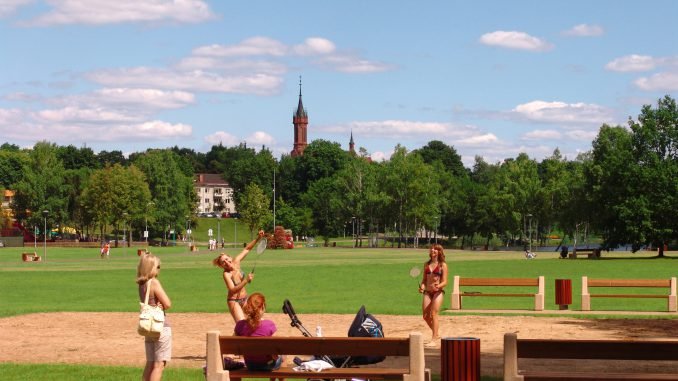
People at the Lithuanian Medical Tourism Cluster, working intensely in both directions, believe there is still untapped potential for exporting services both Westwards and Eastwards. They are to substantiate this supposition in the international conference “Medical Tourism: Directions for Lithuania’s Service Export Breakthrough” to be held next Thursday, 3 September, in Vilnius.
“Statistics Lithuania tells us that, in the second quarter of this year, there has been more growth in incoming guests in resort towns, Birštonas (15.8 %) and Druskininkai (8.6 %), than in the country as a whole (4.8 %). I think one of the main reasons behind the trend is a growing global demand for wellness tourism,” says Gražvydas Morkus, head of the Lithuanian Medical Tourism Cluster.
Even with a decline in customer flows from Russia and Belarus, foreign tourists spend impressive sums of money in Lithuania. While Russians and Belarusians spent about 14 % less during the first quarter of this year compared to the same period last year, they still account for more revenue (EUR 86.5m over the first quarter of 2015) than Lithuania’s fifteen other top-ranking incoming tourism markets combined (EUR 82.5m).
According to Mr. Morkus, Lithuania’s service exports to the Eastern markets fare better than goods exports because of the various sanctions that Russia has imposed on the latter. “I think that we still have as much opportunity to attract tourists from the East as from the West. Granted, we need to use different strategies to present our country and our services, to concentrate more on building personal contacts and long-term connections,” the expert believes.
In order to conquer foreign markets, companies often need to join forces. All the more so, since various sectors reek financial benefit from incoming wellness tourism: from medical and wellness service providers and travel agencies to hotels, restaurants and entertainment and shopping centers. The state collects more taxes, too.
“Bearing in mind Lithuania’s distinctiveness and opportunities in the global wellness tourism market, we propose that we seek the service export potential in this particular sector. True, this requires not just closer cooperation among distinct business sectors and companies, but also support from our government. We are therefore glad to have this opportunity for dialogue during the international conference next week,” Mr. Morkus says.
The event, which is open to everyone free of charge, will include speakers from abroad: president of the Medical Tourism Association Renée-Marie Stephano and wellness tourism expert and author of a number of publications on the topic Dr Prem. They are going to speak about global medical tourism trends and opportunities for Lithuania. The conference will also host discussions on topical issues ranging from potential and directions of exporting tourism services to Lithuania’s image in the world.
“I sincerely believe that insights from world-class experts and rich discussions with representatives of government institutions will provide a great impetus for the country’s medical, wellness and tourism service providers that represent tens of thousands of jobs. After all, autumn is not only the time for reviewing past results, but also for drawing up ambitious plans for the year to come. Especially given the approaching start of the next EU support period,” summarizes Mr. Morkus.

Be the first to comment